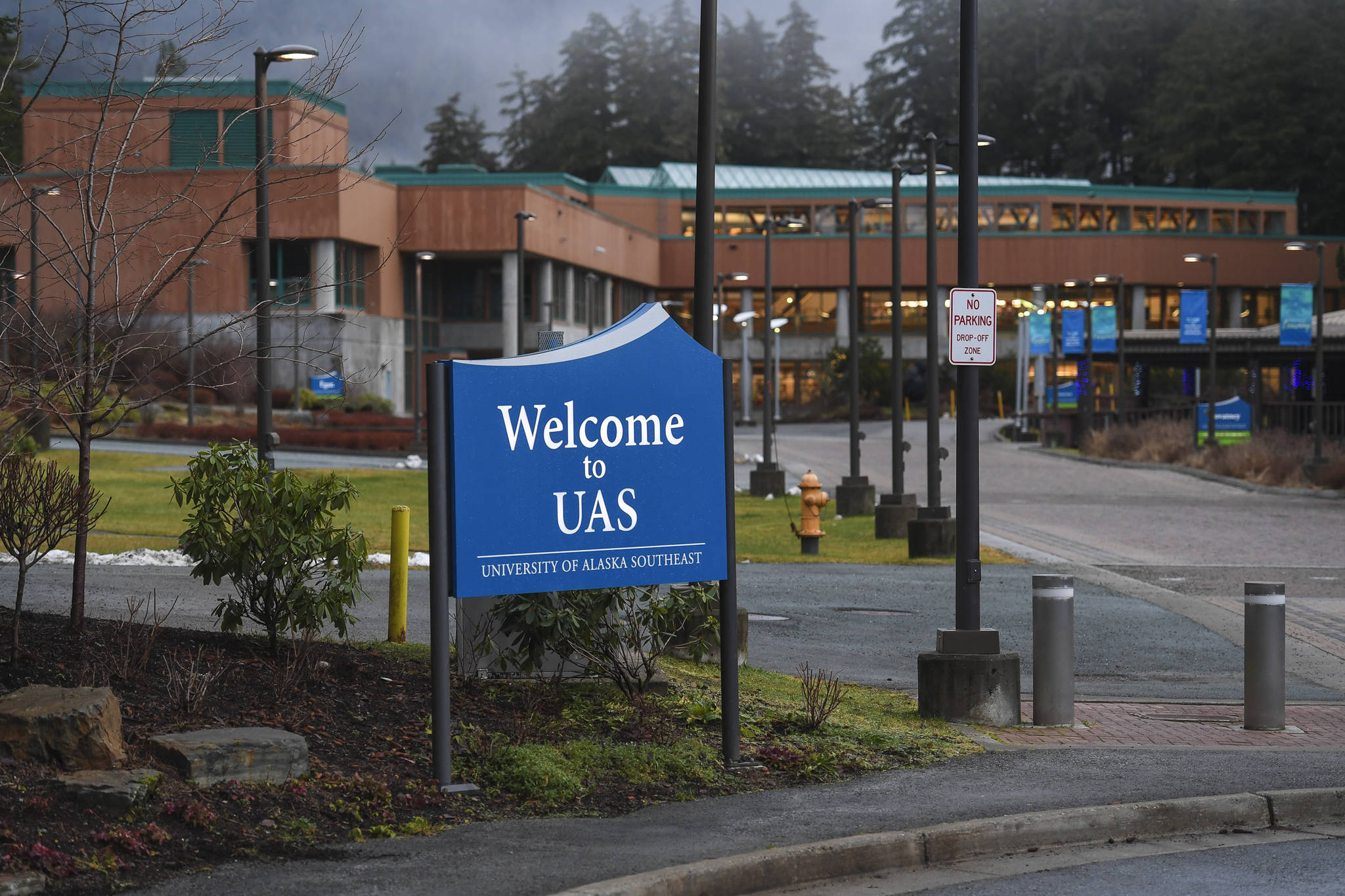In just under an hour, the University of Alaska Board of Regents approved the draft version of their work plan for 2020 in a brief meeting Monday afternoon.
The plan outlines the regent’s meeting schedule for the coming year and the topics to be taken up at each meeting. The university is facing $70 million in cuts over three years following an agreement with Gov. Mike Dunleavy signed in August.
Dunleavy has said the reductions are necessary in light of the state’s $1.6 billion deficit and had originally proposed cutting $136 million from the university budget.
The university went through one round of reductions already this year and has more lined up for next year, according to the draft version of the work plan.
Also on the plan are proposed tuition increases for fiscal year 2021 and 2022. Regent Sheri Buretta said in the meeting those increases were a difficult decision that needed to be looked at seriously.
[No confidence vote, delay shake up University of Alaska]
During the meeting, regents were careful to discuss how to be inclusive with their policy making. Though it was never mentioned specifically, the university received a letter in September from the regional accrediting agency the Northwest Commission on Colleges and Universities.
The letter expressed the commission’s concern with how the UA restructuring process was taking place. The letter raised concerns university leaders were not taking into account feedback from stakeholders such as students and faculty, as required by NWCCU guidelines.
Any policy decisions made by the regents will be audited by the regent’s Governance Committee in consultation with UA General Counsel Mike Hostina. Hostina said that a review of policy decisions by the general counsel would give his office a lot of authority over which policies are ultimately adopted. Regents would need to carefully consider the “allocation of authority,” Hostina said, in light of concerns about stakeholder involvement.
Regent Mary Hughes said she anticipated meeting with stakeholders to take place at least once a month from February to June when policy decisions are being made. Chair John Davies asked if there was a time scheduled when stakeholders could be “looped back in” once policies had been decided on.
There could be, Hughes said, noting that all regents meetings are open to the public and documentation provided during meeting was available online. Davies suggested there be yet another consultation opportunity for stakeholders in September or November once policies have been adopted and school is back in session.
On Dec. 5, the regents voted to halt the restructuring process until the University of Alaska Fairbanks had completed its accreditation process in 2021. NWCCU’s letter expressed concern at the “long-term consequences of reduced funding as it relates to student learning and educational attainment.”
If any of the University of Alaska campuses were to lose their accreditation, it would make those institutions effectively defunct, as any degrees they awarded would not be recognized by the U.S. Department of Education.
• Contact reporter Peter Segall at 523-2228 or psegall@juneauempire.com.

